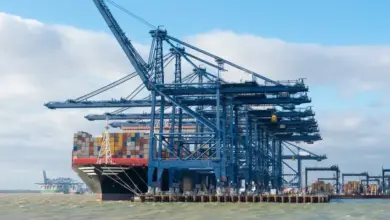This is a copy of an email received by the Manadeel Waraq campaign for the defense of street children:
“Dear all, Today the hospital admitted a 3-year-old girl. Her mother and father brought her to the hospital saying she had fallen from the second floor. Upon examination, the physician issued a report with the following: ‘Both arms broken, concussion, cigarette burns all over the body, second-degree burns caused by an iron on both legs, deformities in the body where she had been bitten.’ We called the police and the parents were arrested.”
The simple string of words made me cry while translating this brief report for my article. The report is so cold in its lack of emotion — even factualness and rawness. But it had to be, because words cannot ever capture the feelings of the person who went to see this girl and wrote to us, reaching out for help.
Can words ever represent the fear, pain, cruelty and injustice that this 3-year-old girl suffered, is suffering and will continue to suffer? Damn words for being so limiting, damn the girl’s parents for their cruelty, and damn life for making them so heartless.
This email was sent to us, a group of individuals based around the world, who can do nothing but coordinate help.
Although we advocate real social change in disenfranchised children’s lives, we work on the premise that we will save one child at a time. But what’s left to save here?
We are a group of individuals working against a system bent on the victimization of children, a government whose every attempt to talk about children oppresses them further and a homeland whose children aren’t, and have never been, its priority.
As much as I possibly can, I try to write my articles without emotion, without coercing my readers to feel a certain way, and definitely without trying to portray a child simply as a victim, but as an agent who is capable of change, and of influencing his or her own world. This is what I teach; this is what the new sociology of childhood is all about.
But this 3-year-old girl? How can I not ask you, dear reader, to cry with me? How can I not ask you whose victim she is?
I managed to enlist the help of one my heroes: Dr. Hany Hammam, a reconstructive cosmetic surgeon who performed a rape scar surgery for one of my girls. He said he would take care of this little girl.
Manadeel Waraq’s Amira Qotb also enlisted the help of the head of the Coalition for Children’s Rights in Egypt for the legal side of the case. Emails go back and forth proposing ideas about the shelter to which we could temporarily move the child. But then what?
If this little girl miraculously gets better, she will need two things that probably will not be available to her: psychological help, and shelter or alternative care. Perhaps with the amazing Twitter responses I got to my call for help, we’ll find the former.
But what about the latter? There are only two types of alternative child care systems in Egypt: orphanages for biological orphans and street children shelters for social orphans.
So what about abused children? What about foster care, kinship, adoption?
There is nowhere for this little girl to go if she gets better. Our Manadeel Waraq initiative cannot deal with this alone. And we cannot possibly continue working on a case-by-case basis.
We as a society must get together to be part of a deep effort to change the lot of children who suffer familial abuse — all of us.
This is what we need to do: We must admit that familial abuse — torture, incest and gendered violence — happens. We need to change the deep-rooted idea that children somehow “belong” to their parents, so that it is not society’s role to interfere on their behalf if they are threatened. And we must campaign for a foster-care system that is well-planned, structured and monitored.
If you think what I am calling for is unrealistic, please let me remind you that in 1988 it took just one Englishman, Richard Hemsley, to set up the first shelter for Egypt’s street children, after he learned that nursing homes and orphanages were the only forms of alternative care available in our country.
We need to be progressive. It will only take a few of us to look around and see the truth: that perhaps with a monitored foster-care system, we cannot only get appropriate shelter for our 3-year-old girl once she’s better, but a whole system that provides an alternative for other abused children.
Let’s keep the conversation going. Don’t think you cannot help. You can, we all can and we all have to.
It’s just a coincidence that it wasn’t you, as a baby, who was burnt and bitten. We each have a responsibility we can no longer ignore.
It seems that even a 3-year-old girl can be an agent for change, if only we let her be.
Nelly Ali is a human geographer doing her PhD at Birkbeck College, University of London. She works with street girls and young street mothers in Cairo.
This piece was originally published in Egypt Independent's weekly print edition.




